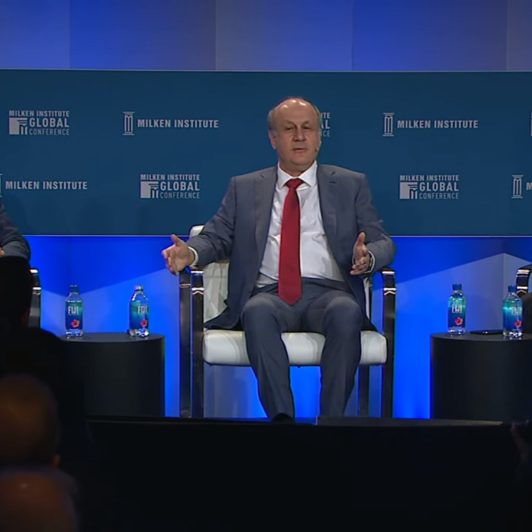As the impact of technological innovation continues to grow, how can we ensure that it will actually be beneficial to society, rather than harmful?
This question lay at the heart of a virtual fireside chat hosted in late 2020 by Stanford University’s Center on Philanthropy and Civil Society (PACS) and featuring Two Sigma Co-founder and Co-chairman David Siegel.
Joining David was Tristan Harris, Co-founder and President of the Center for Humane Technology and a former Google Design Ethicist. (Tristan was also featured in the popular documentary The Social Dilemma.)
Moderating the talk was Ge Wang, Associate Professor at Stanford University’s Center for Computer Research in Music and Acoustics. Professor Wang has advocated integrating philosophy, ethics, and art education into STEM education.
An existential fork in the road
As a society, the participants agreed, we have reached something of an existential fork in the road with regard to technology. “I think that our world has been changing more rapidly than anyone had anticipated, and people don’t know exactly what to make of it,” said Siegel.
Part of the issue is the power that social media and related technologies have on influencing human choice, human thoughts, and human behavior. Harris noted that “right now, our attention is in the hands of a handful of technology companies which have inadvertently…made society go through a kind of psychosis.”
The information overload we all endure today is comparable to a denial-of-service attack on the human mind, according to Siegel. This, along with infinite personalization, harms individuals and society at large, with the result being greater political paralysis and polarization.
What does it mean for technology to be ethical?
Even though all agreed that harm is being done, understanding the sources of it—not to mention how to mitigate it—proved more complex. Siegel and Harris debated if the actual technology is to blame, the user of the technology, or both.
Moreover, what responsibilities do researchers and innovators have for the way their creations are ultimately used? What roles should governments, companies, individuals, and nonprofits be playing in this debate? With the pace of technological change only quickening, these questions grow more urgent by the day.
For a full replay of the discussion, watch the video below.






